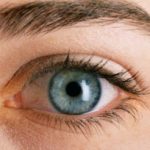May is National High Blood Pressure Education Month, so we have compiled some of our news articles to educate you about blood pressure and the surrounding issues like how high blood pressure is a risk factor for stroke.
High blood pressure is a growing problem and because it doesn’t present itself with symptoms, it can often go undetected until a more serious issue has developed. For this reason, it’s important to educate yourself about high blood pressure do what you can to bring your numbers down within a healthy range to avoid complications.
Advertisement
So please enjoy the articles below, and we hope you take away some good advice to help manage your blood pressure.
 Stroke risk in high blood pressure patients detected by ophthalmologists using retinal imaging
Stroke risk in high blood pressure patients detected by ophthalmologists using retinal imaging
Stroke risk in high blood pressure patients can be detected by ophthalmologists using retinal imaging. A study published in the Hypertension Journal by the American Heart Association presented some pretty amazing findings: retinal imaging could determine a person’s likelihood of hypertension and stroke. This could change the face of these two leading killers, as they are both diseases with virtually no symptoms and can go unnoticed until it’s too late. The sad reality is, millions of people die from a heart attack, stroke, and other heart problems every year, despite the fact that proper screening and simple lifestyle modifications could help prevent the majority of these deaths. Continue reading…
 High blood pressure leads to stroke, dementia, and cognitive decline
High blood pressure leads to stroke, dementia, and cognitive decline
Untreated high blood pressure can lead to stroke, dementia, and cognitive decline. Stroke is the second leading cause of death, and having high blood pressure is a risk factor for having one. Dr. Christian Stapf, a neurologist at the CHUM’s Hôpital Notre-Dame, said, “We live in a society that is being killed by its arteries. The main cause of stroke is high blood pressure, which blocks the small vessels of the brain and makes it less efficient.” The accumulation of brain lesions can contribute to cognitive disorders and dementia.
Stapf’s previous research from 2013, “showed that when blood pressure was rapidly lowered, patients survived [stroke] with smaller hematomas and less sequelae.” In 2014, he conducted additional research comparing two groups – one that received treatment for an unruptured brain arteriovenous malformation and the other was only treated after waiting a few years. He explained, “After 224 patients, the study was terminated by the Supervisory Committee. Imagine there were five times more strokes in the group whose malformation was corrected! It was concluded in this case that it was safer to live with the brain malformation than trying to repair it.”
Strokes are fast acting, and the window for preventing long-term damage is small – the first six hours are crucial. The more time passes without treatment, the more neurons can be lost, which speeds up aging by 3.6 years. Continue reading…
 High blood pressure and alcohol – a dangerous combination
High blood pressure and alcohol – a dangerous combination
If you have high blood pressure, every additional ounce of alcohol you drink could be harming your heart. Drinking alcohol with high blood pressure has been found to harm the lower left chamber of the heart, which is responsible for pumping blood to the rest of the body.
Lead researcher Dr. Leonardo Sechi said, “Because even moderate alcohol consumption increases occurrence of early functional cardiac changes in patients with [high blood pressure], reduction of use of alcoholic beverages might be beneficial for prevention of cardiac complications in these patients.”
How this damage occurs is still unclear, and additional research is required to uncover the exact mechanisms behind this association. Continue reading…
 Untreated obstructive sleep apnea raises risk of resistant hypertension
Untreated obstructive sleep apnea raises risk of resistant hypertension
Untreated obstructive sleep apnea raises the risk of high blood pressure that is resistant to medication. The study involved patients with cardiovascular risk factors or established heart disease and moderate or severe obstructive sleep apnea. The participants were prescribed one of three medications to treat hypertension, including a diuretic. The researchers found that resistant elevated blood pressure was four times greater in patients with severe sleep apnea, compared to those with moderate sleep apnea.
First author Dr. Harneet Walia said, “Our findings suggest that severe obstructive sleep apnea contributes to poor blood pressure control despite aggressive medication use. This is an important finding from a clinical perspective as poor blood pressure control in patients taking multiple antihypertensive medications makes them particularly vulnerable to increased cardiovascular risk.”
President of the American Academy of Sleep Medicine Dr. Timothy Morgenthaler added, “High blood pressure that is resistant to treatment with medications is a strong warning sign for the presence of obstructive sleep apnea, a chronic disease that increases the risk for heart disease and stroke. Over one-third of patients with hypertension and nearly eight out of 10 patients with treatment-resistant hypertension have obstructive sleep apnea. People who have high blood pressure should talk to a doctor about their risk for sleep apnea.”
The Centers for Disease Control and Prevention (CDC) estimated that 36 million Americans have hypertension that is not well-managed, which puts them at risk for cardiovascular-related problems, including heart attack. The American Academy of Sleep Medicine reports that 80 percent of drug-resistant hypertension patients also have sleep apnea.
Dr. Walia added, “Even under the close care of a cardiologist following national guidelines for treatment of cardiovascular risk and comprehensive medication regimens, severe levels of obstructive sleep apnea versus a moderate level of OSA appear to be contributing to suboptimal blood pressure control.” Continue reading…
 Psoriasis risk increases with high blood pressure and anti-hypertension drugs, study
Psoriasis risk increases with high blood pressure and anti-hypertension drugs, study
Psoriasis risk increases with high blood pressure and anti-hypertension drugs. Psoriasis is an immune-related disease affecting nearly three percent of the American population. The researchers found that in women, specifically, long-term hypertension along with the use of anti-hypertension drugs (especially beta-blockers) was associated with a higher risk of psoriasis.
Advertisement
The researchers analyzed psoriasis cases in 77,728 women participants in the Nurses’ Health Study from 1996 to 2008. There were 843 incidences of psoriasis.
Women who had had high blood pressure for at least six years were at the highest risk for psoriasis, compared to women with normal blood pressure. The risk was also higher among hypertensive women who did use the medication and who did not use the medication, compared to normal blood pressure women. Those women who regularly used beta-blockers for at least six years were at a high risk for psoriasis as well.
The researchers noted, “These findings provide novel insights into the association among hypertension, antihypertensive medications, and psoriasis. However, further work is necessary to confirm our findings and clarify the biological mechanisms that underlie these associations.” Continue reading…
